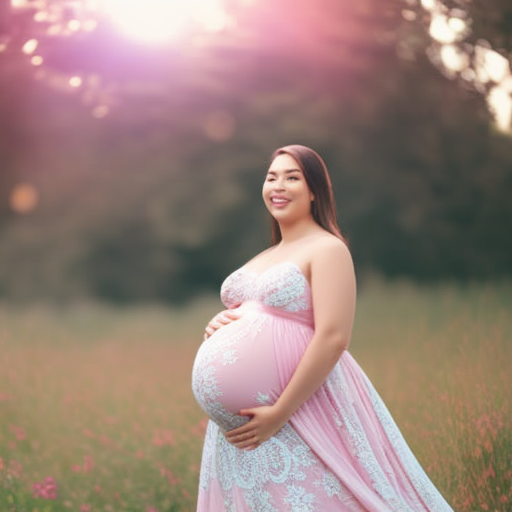Baby’s First Words
Imagine the joy that fills your heart when you spot the first tiny sprout peeking through the soil, promising the beauty of a blooming flower. Just like that, your baby’s first words hold the same sense of wonder and anticipation.
In this intimate journey of language development, you play a vital role in nurturing the growth of your little one’s communication skills. Baby’s First Words is your guide, offering insights into the preverbal stage, signs of language readiness, and playful ways to encourage language skills.
Through everyday interactions, you can create a language-rich environment that fosters meaningful connections. So, join us as we celebrate the milestone of first words and embark on this enchanting voyage of language discovery together.
Key Takeaways
- Building a strong language foundation in the early years is crucial for overall development
- Babies communicate before they start speaking through gestures, body language, and vocalizations
- Recognizing signs of language readiness, such as babbling and responding to their name, is important
- Playtime, interactive toys, pretend play, singing songs, and reading books all encourage language development
The Importance of Early Language Development
You need to understand the significance of early language development for your baby. Language milestones and building a strong language foundation are crucial aspects of your child’s overall development. From the moment your baby is born, their brain is like a sponge, ready to soak up all the sounds, words, and language patterns they hear. It’s during the first few years of life that their language skills rapidly develop, setting the stage for their future communication abilities.
As a parent, you play a vital role in nurturing your baby’s language development. By engaging in conversations, singing songs, and reading books aloud, you’re exposing them to a rich language environment. This exposure helps them learn new words, understand different tones and emotions, and develop their vocabulary. It also helps them grasp the rules of grammar and sentence structure.
Language milestones serve as markers of your baby’s progress. From babbling and cooing to saying their first words, each milestone signifies their growing language abilities. By recognizing and celebrating these milestones, you can track your baby’s progress and support their language development in a meaningful way.
Building a strong language foundation early on sets the stage for your baby’s future learning and communication skills. So, take the time to engage with your little one, talk to them, and expose them to a language-rich environment. Your efforts now will have a lasting impact on their language development and overall success.
Understanding the Preverbal Stage
During the preverbal stage, you can observe your baby’s communication skills before they start speaking. This is an exciting time as you begin to understand and respond to your baby’s cues in a whole new way.
Here are four key things to know about recognizing communication cues and supporting nonverbal language development:
-
Eye contact: Your baby will start to make eye contact with you, which is an important form of communication. They may look at you intently or try to hold your gaze. Encourage this by smiling and talking to them.
-
Gestures: Watch for your baby’s gestures, such as pointing or waving. These actions show that they’re trying to communicate and share their thoughts or needs with you. Responding to these gestures will reinforce their communication skills.
-
Body language: Pay attention to your baby’s body language. They may use different movements or expressions to convey their emotions or desires. Learning to read their cues will help you better understand what they’re trying to communicate.
-
Vocalizations: Your baby will also start making various sounds and noises. They might coo, babble, or even imitate your speech. Responding to their vocalizations by talking back or imitating their sounds will encourage their language development.
Recognizing the Signs of Language Readiness
To determine if your baby is ready to start speaking, watch for specific indicators of language readiness. Bonding activities, such as reading books together or singing songs, can help foster language development. Your baby may start showing signs of language readiness around 6 to 12 months old.
One of the first language milestones to look out for is babbling. As your baby experiments with different sounds, they’re laying the foundation for speech. Another indicator is responding to their name. When you call your baby’s name and they turn towards you, it shows that they’re recognizing and understanding words.
Pay attention to gestures too, as they can be an important precursor to verbal communication. For example, if your baby waves or points at something while making sounds, it demonstrates their desire to communicate and share their thoughts.
Keep in mind that every baby develops at their own pace, so don’t worry if your little one takes a bit longer to reach these milestones. Encourage their language development through engaging activities and, most importantly, enjoy the process of watching them discover the world of language.
Encouraging Language Skills Through Play
Engage your baby in playful activities to nurture their language skills. Playtime isn’t only fun, but it also provides valuable opportunities for your little one to develop their language abilities. Here are four interactive ways to encourage language skills through play:
-
Interactive toys: Choose toys that encourage your baby to engage and interact. Look for toys that make sounds, have buttons to press, or objects to manipulate. These toys can help your baby learn new words and understand cause and effect.
-
Role-playing games: Pretend play is an excellent way to stimulate language development. Encourage your baby to imitate everyday activities like cooking, talking on the phone, or taking care of a stuffed animal. Through these games, your little one can learn new vocabulary, sentence structure, and social skills.
-
Songs and rhymes: Singing songs and reciting rhymes aren’t only enjoyable but also beneficial for language development. Choose songs with repetitive lyrics and simple melodies. This helps your baby learn new words, improve pronunciation, and develop their memory skills.
-
Storytime: Reading books together is a wonderful way to promote language skills. Use colorful picture books with simple words and engaging illustrations. As you read, point to the pictures and talk about what you see. This helps your baby expand their vocabulary and comprehension abilities.
Nurturing Communication Through Everyday Interactions
Make the most of everyday interactions to nurture your baby’s communication skills. Building vocabulary through reading and creating a language-rich environment are essential in helping your baby develop strong communication skills. By incorporating these practices into your daily routine, you’re providing your child with the tools they need to express themselves effectively.
Reading to your baby from an early age is a wonderful way to build vocabulary. Choose books with colorful pictures and simple words that are age-appropriate. As you read, point to the pictures and name the objects, encouraging your baby to associate words with their corresponding images. This helps expand their vocabulary and understanding of language.
Creating a language-rich environment involves using language throughout the day in meaningful ways. Talk to your baby as you go about your daily activities, describing what you’re doing and asking them questions. Engage in simple conversations, even if they aren’t yet able to respond with words. This helps them develop an understanding of conversation patterns and turn-taking.
Additionally, use gestures, facial expressions, and body language to enhance communication. Babies are keen observers, and they pick up on these nonverbal cues, which assists them in understanding and expressing themselves.
Celebrating the Milestone of First Words
When your baby utters their first words, it’s an exciting moment that marks a significant milestone in their language development. Celebrating this achievement is a wonderful way to acknowledge your little one’s progress and encourage their continued growth.
Here are four ideas to help you celebrate and document this special occasion:
-
Throw a small party: Invite close family and friends to celebrate your baby’s first words. Decorate the space with balloons and banners, and have a cake or special treat to share. Take plenty of photos to capture the joyous moments.
-
Create a memory book: Start a journal or scrapbook to document your baby’s language development journey. Write down their first words, along with the date and any memorable context. Include photos, drawings, or mementos to make it even more special.
-
Record a video: Capture the moment your baby says their first words on camera. It’s a precious memory that you can look back on and share with your child when they’re older. Hearing their own voice can be a delightful experience for them.
-
Share the news: Spread the word about your baby’s milestone! Share the news with loved ones through phone calls, social media, or even a cute announcement card. Celebrating this achievement with others can bring a sense of pride and joy.
Frequently Asked Questions
What Are Some Common Milestones in Language Development Before a Baby’s First Words?
Before your baby speaks their first words, they go through important milestones in language development. These include prelinguistic communication, where they use gestures and sounds, and the babbling stages, where they experiment with different sounds and syllables.
How Can Parents Support Their Baby’s Language Development During the Preverbal Stage?
To support your baby’s language development during the preverbal stage, try using baby sign language to help them communicate. Also, make reading aloud a daily ritual—it’s not only fun, but it also fosters language skills.
What Are Some Signs That Indicate a Baby Is Ready to Start Speaking Their First Words?
You’re wondering how to tell if your baby is ready to start speaking their first words. Look out for signs like babbling, imitating sounds, and pointing to objects. These early language development milestones indicate their language readiness.
Are There Any Specific Toys or Activities That Can Encourage Language Skills in Babies?
To encourage your baby’s language skills, engage in playtime with interactive toys and activities that stimulate their early communication. Incorporate reading into your daily routine to provide additional language development opportunities.
How Can Parents Create a Language-Rich Environment and Promote Communication During Everyday Interactions With Their Baby?
To create a language-rich environment and promote communication with your baby, engage in daily interactions. Talk, sing, and read to them. Use gestures and facial expressions to enhance understanding. Encourage their responses and celebrate their attempts at communication.
Conclusion
Congratulations! You have embarked on a remarkable journey of witnessing your baby’s first words.
Just like a beautiful flower blossoming, your little one’s language skills have started to bloom. By nurturing their communication through play and everyday interactions, you have laid a strong foundation for their future language development.
Remember, every word they utter is a tiny seed of knowledge that will grow into a forest of language proficiency.
Keep celebrating these milestones and watch your child’s language abilities flourish!







